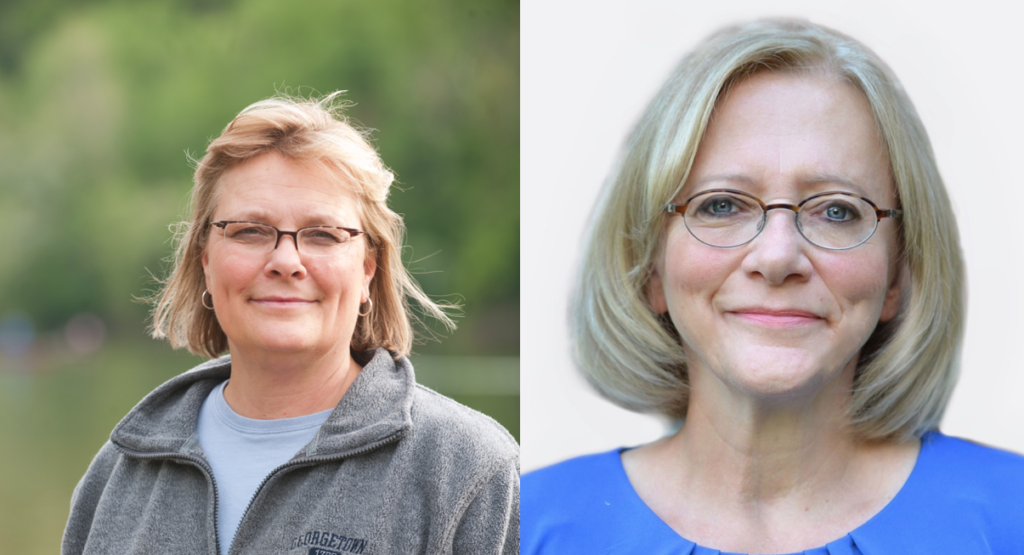Children’s Health and Environment Center Receives Renewed Funding
February 6, 2020 – Close to $1 million in new funding will support the ongoing work of the Mid-Atlantic Center for Children’s Health and the Environment, which is housed at the School of Nursing & Health Studies (NHS). (Visit the center’s website.)

The five-year award to the center, which is a Pediatric Environmental Health Specialty Unit (PEHSU), is supported through funding from the Centers for Disease Control and Prevention to the American Academy of Pediatrics, which administers the funding and contract with Georgetown.
“The team is thrilled to be awarded another five years of funding to advance its goal of providing expert information on reproductive and children’s environmental health to health professionals and communities that, ultimately, will result in a reduction in exposure to hazardous environmental pollutants that can lead to childhood disease and disability,” says Dr. Laura Anderko, the Robert and Kathleen Scanlon Chair in Values Based Health Care at NHS.
Anderko has directed the center since it was established at Georgetown in 2015 and, with the new round of funding, she is joined by co-director Dr. Peggy Slota, who directs Georgetown’s Doctor of Nursing Practice Program.
Environment and Health
Anderko is a nurse who is well known for her work in public and environmental health. Including the new award, the center has received more than $2 million to conduct its efforts.
“The center provides consultation and education to health providers, students, and communities about reproductive and children’s environmental health impacted by a variety of exposures such as lead, air and water pollutants, and climate change,” Anderko says.
The center’s scope of work is Region 3, which includes Delaware, the District of Columbia, Maryland, Pennsylvania, Virginia, and West Virginia.
She notes that her team has “educated thousands of health providers, community members and health professional students throughout Region 3 about environmental hazards and health impacts.”
‘Health of Future Generations’
Anderko says that the interdisciplinary team includes nurses, nurse practitioners, nurse-midwives, physicians, and public health professionals. Core center staff are Anderko, Slota, assistant director Emma Pennea (G’19), nurse consultant Professor Lois Wessel (G’97), and nurse researcher Dr. Kelly Jones.
“Our approaches embody a public health approach, which focuses on the prevention of exposure to hazardous pollutants, while also educating health professionals about environmental health assessment skills and methods for managing symptoms when exposures occur,” Anderko says. “Reducing detrimental health impacts in children resulting from pollutant exposure makes this work critical to ensuring the health of future generations.”
